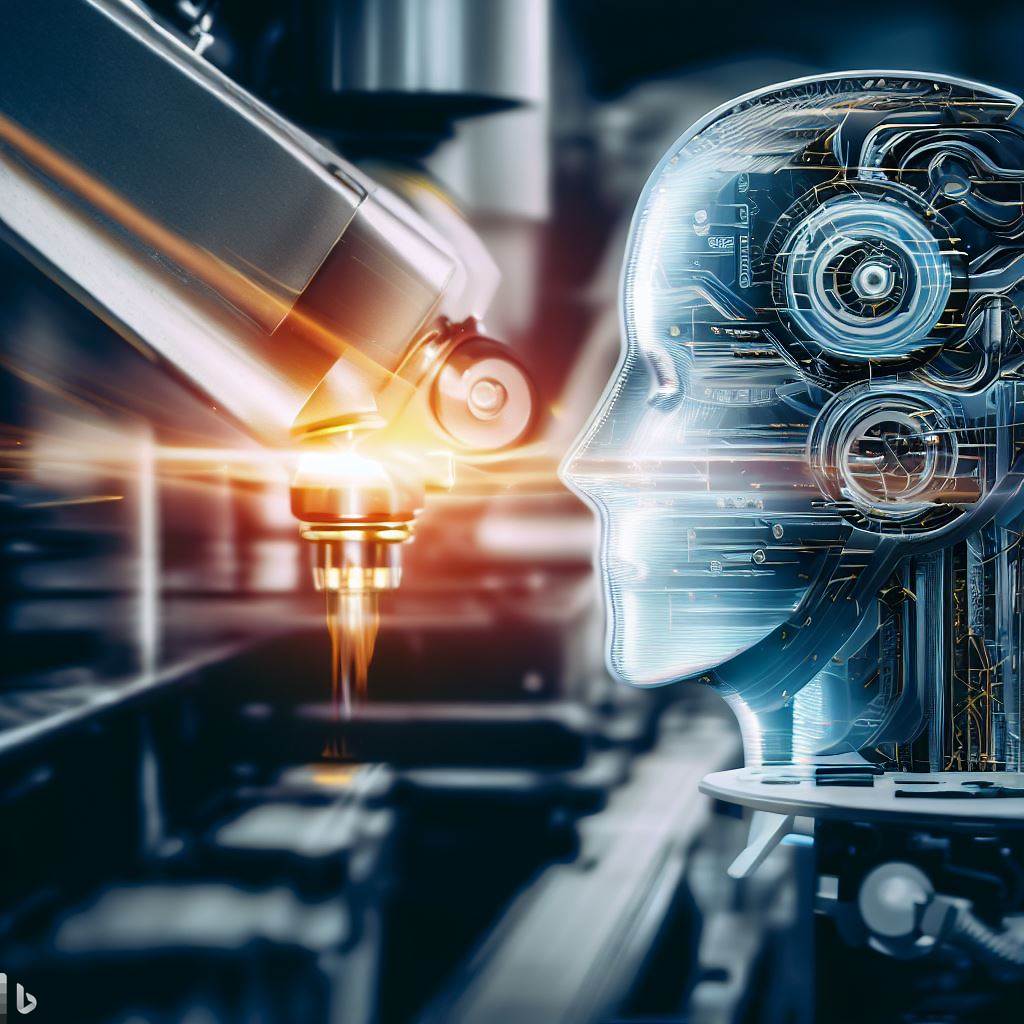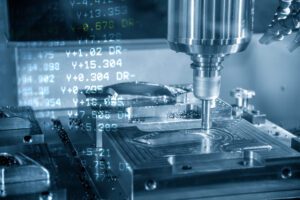In the next few years, AI is expected to have a significant impact on the machining and manufacturing industry. Here are some possible applications and examples with great potential and that are worth exploring.
Predictive Maintenance: Preventing Downtime and Optimizing Efficiency
One of the most promising applications of AI in machining and manufacturing lies in predictive maintenance. Imagine a future where AI algorithms continuously analyze sensor data from machines, monitoring variables such as temperature, vibration patterns, and energy consumption. By detecting patterns and anomalies, AI can predict when maintenance is required, preventing costly breakdowns and optimizing maintenance schedules. Maintenance personnel would receive timely notifications, allowing them to address issues proactively, thereby minimizing downtime and optimizing overall equipment efficiency.
Quality Control: A New Era of Precision and Perfection
AI’s potential in quality control is immense. In the near future, computer vision systems powered by AI algorithms would work alongside human operators, inspecting products on the assembly line with unparalleled precision. By analyzing visual data in real-time, AI can detect defects, inconsistencies, or deviations from desired specifications. This advanced quality control system would reduce the risk of human error and enable manufacturers to maintain exceptionally high product quality standards while reducing waste and enhancing customer satisfaction.
Process Optimization: Harnessing AI’s Analytical Power
Machining and manufacturing processes could witness significant improvements with AI-driven process optimization. By leveraging vast amounts of historical and real-time data, AI algorithms could identify inefficiencies, bottlenecks, and areas for improvement. AI could provide insights on the optimal machine settings, such as speed, temperature, and tooling parameters, to maximize production output while minimizing energy consumption. Manufacturers would have a data-driven approach to fine-tune their operations, resulting in increased efficiency, cost savings, and reduced environmental impact.
Intelligent Decision Support: Empowering Manufacturing Professionals
Soon, AI would is bound to act as an intelligent decision support system for manufacturing engineers and operators. By analyzing vast amounts of production data in real-time, AI algorithms could provide valuable insights and recommendations. Manufacturing professionals would have access to real-time performance metrics, predictive analytics, and suggestions for optimizing production schedules, resource allocation, and addressing production bottlenecks. This would enhance decision-making capabilities, improve operational efficiency, and drive continuous improvement across the manufacturing ecosystem.
The integration of AI into machining and manufacturing is poised to revolutionize the industry in the next few years. MachiningCloud is embracing this future and has already started implementing features that will be enhanced by AI capabilities; for instance, recommendations for tool and feeds and speeds will be determined from empirical data and refined with AI and custom algorithms.




